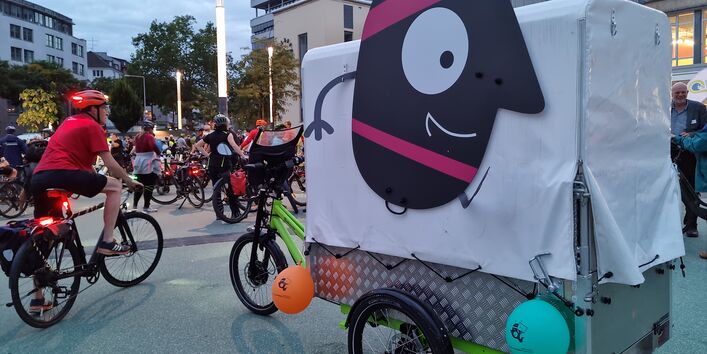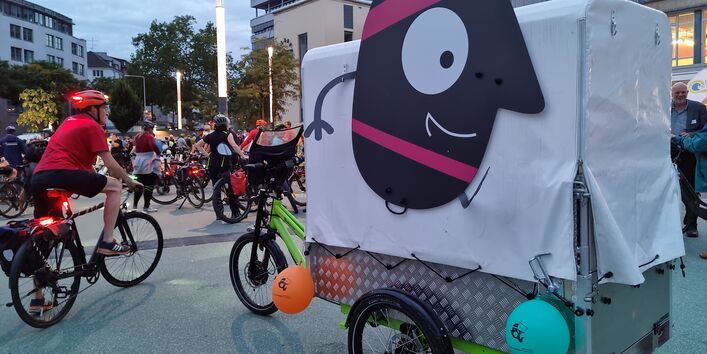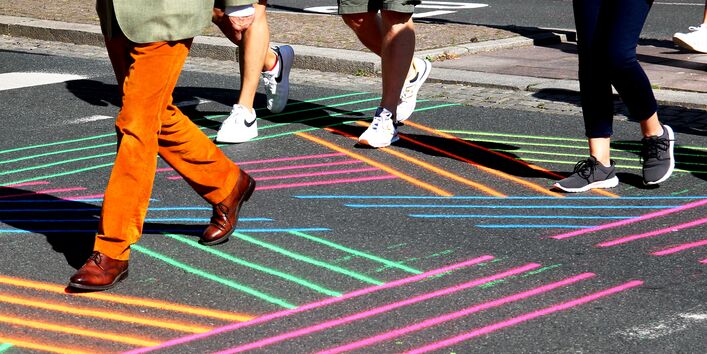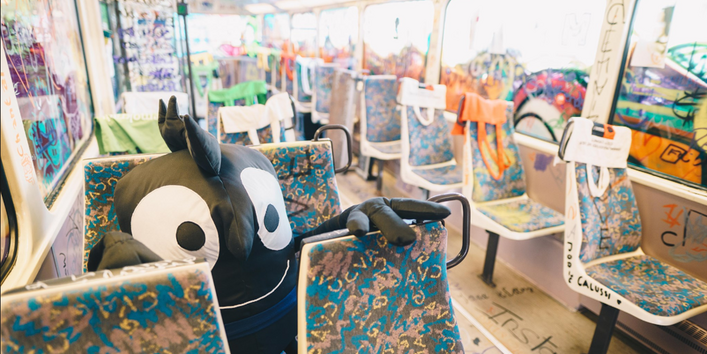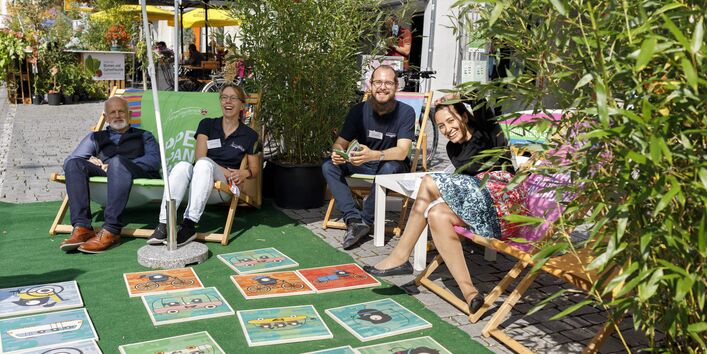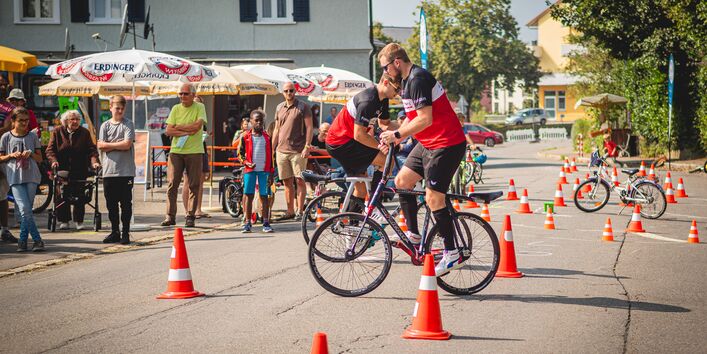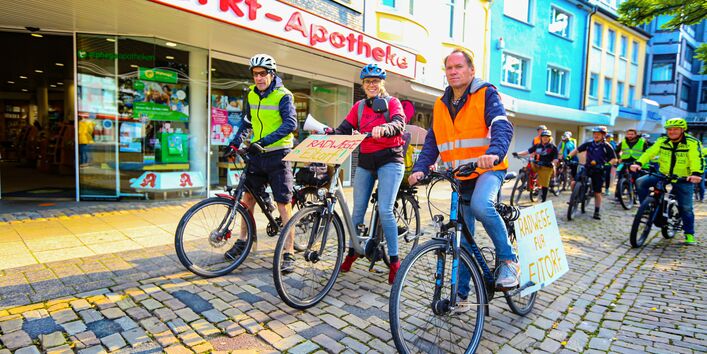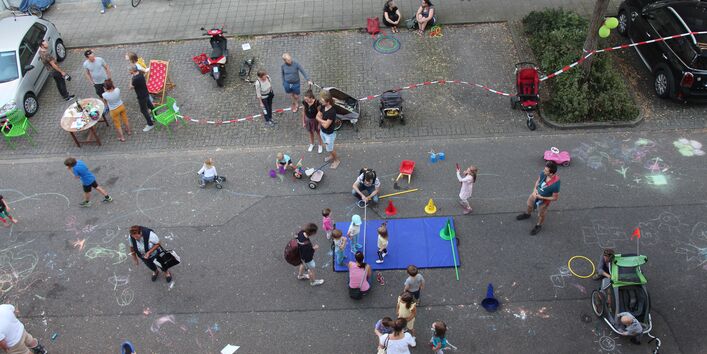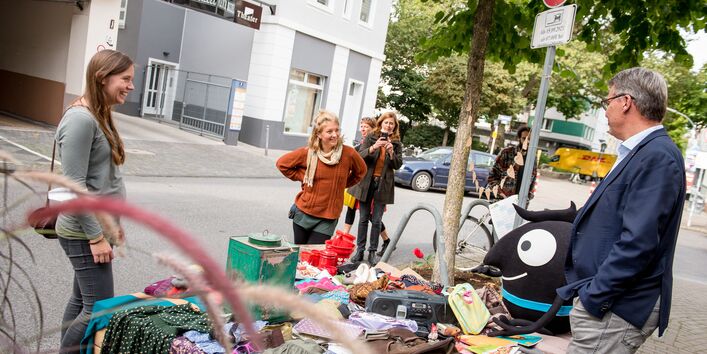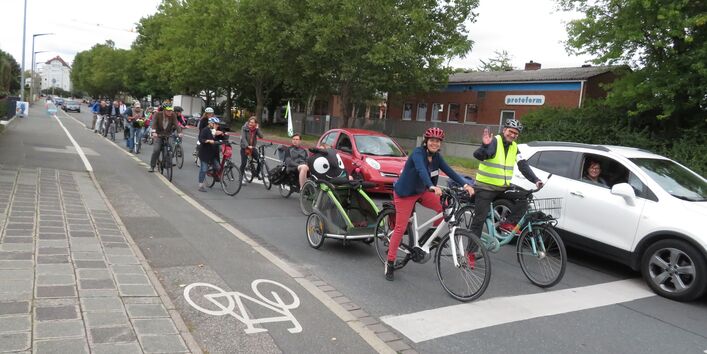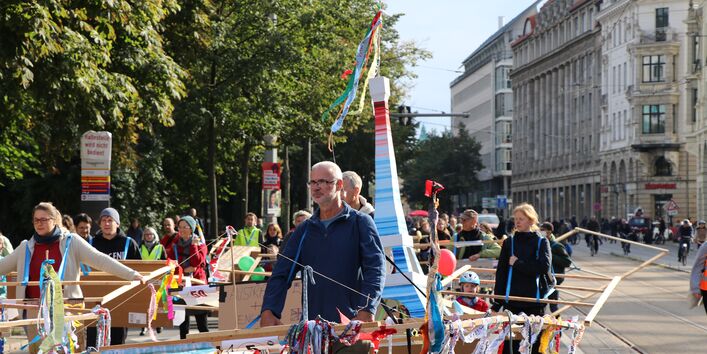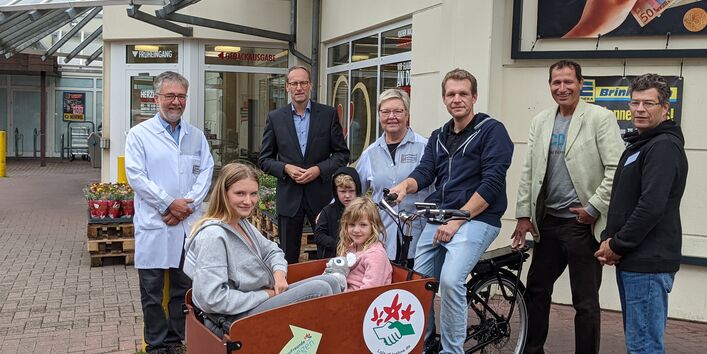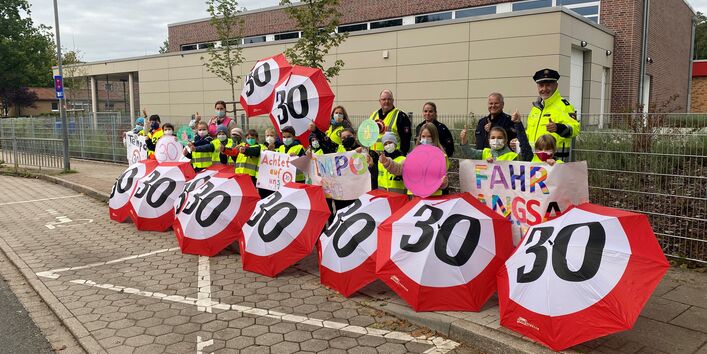Federal Environment Ministry and German Environment Agency name winners of innovative mobility actions
The winning actions of the first nationwide competition of European Mobility Week (EMW) were named on 25 April. Temporary play streets, street sponsors, a cargo cycle festival or a “walking machine parade” are among the diverse actions promoting more sustainable mobility which cities, municipalities and nonmunicipal actors such as businesses, associations and schools registered in the competition. The competition is organised by the Federal Ministry for Environment (BMUV) and the German Environment Agency (UBA). In addition to the award itself, a celebration in the winners’ honour will take place to honour the local helpers of the action.
Christian Kühn, Parliamentary State Secretary at BMUV, said: “How we get around matters to all of us. These awards are intended to recognise the outstanding commitment of local authorities and actors to sustainable mobility. Every year, during European Mobility Week from 16 to 22 September, they make it possible to experience in action how changes in our mobility can look in practice. The creativity and diversity of the activities are impressive.”
Dirk Messner, President of the German Environment Agency, said: “Sustainable mobility, which means more cycling and walking as well as better public transportation means more health, traffic safety and climate protection. European Mobility Week provides a great framework for realising projects together with local citizens and to test them for practicability. This is how everyone together is taking a step towards more liveable cities.”
Winners
Best EMW programme for large municipalities (pop. > 100,000)
1st prize: City of Kassel
For a programme of exemplary cooperation and supra-regionality within the framework of the joint promotion of mobility change, active mobility and public transport by the city of Kassel, the district of Kassel and the North Hessian Transport Association. This included an open-air experiment in which Nördliche Untere Königsstraße (street) was closed for a month and used for activities and events such as live music, street football, workshops and expert lectures.
2nd prize: City of Bremen
For targeted communication of the priority areas of the Urban Transport Development Plan 2025 using a variety of actions and the promotion of permanent measures within the framework of the EMW.
3rd prize: City of Chemnitz
For a diverse range of EMW activities with high participation rates and a strong focus on long-term mobility change.
Best EMW programme for smaller municipalities (pop. < 100,000)
1st prize: County seat Fürstenfeldbruck
For using the EMW activities as impetus for the local transport development plan and involving many different actors, such as the public transport association. The city involved many different actors and promoted walking, cycling and public transport. A cargo bike festival with test rides and cycling races, for example, aroused curiosity about the city's support programme for cycling and electromobility.
2nd prize: City of Lindau
For targeted and comprehensive space reconversion in the context of Parking Day and simultaneous promotion of cycling as a mobility alternative, among other things, through new bicycle parking spaces and various competitions.
3rd prize: Eitorf municipality
For remarkable commitment of a small municipality with a challenging budgetary situation to make cycling more attractive.
Most innovative action of the EMW
1st prize: City of Karlsruhe
For their concerted action to temporarily close 35 streets to traffic as play streets by means of a sponsorship model and to transform the market square into an extensive play landscape for romping and jumping.
2nd prize: City of Dortmund
For the targeted conversion of parking space as urban terraces in a very car-centric context and the targeted integration of the EMW into the overall communication on sustainable mobility.
3rd prize: City of Fürth
For the innovative idea of bringing together people from many different backgrounds in the context of an interfaith bike tour, thus linking mobility and religion as a theme.
Best MOBILITYACTION
1st prize: Verkehrswende Leipzig (transport transition)
For their "walking machine parade" on car-free Sunday on Leipzig's Promenadenring, a courageous action with a major practical hurdle to overcome. Together with the city, various actors set a visible sign for sustainable mobility on the otherwise car-dominated ring road. With the parade of 105 self-made walking vehicles, the action also set an unofficial world record.
2nd prize: VCD Minden-Lübbecke Herford e.V.
For the project milla.bike, a cargo bike rental system with model character especially in rural areas.
3rd prize: Buchholz fährt Rad e.V.
For remarkable commitment by civil society and understanding of the problem, shown in various actions promoting the (cargo) bike as an alternative to the car.
The competition was open from 23 September to 19 November 2021. 28 municipalities, including 25 cities and 3 rural districts, as well as 11 non-municipal actors submitted a total of 45 entries. An independent interdisciplinary jury evaluated the innovativeness, reach and transfer potential of the entries and selected the prize winners.
